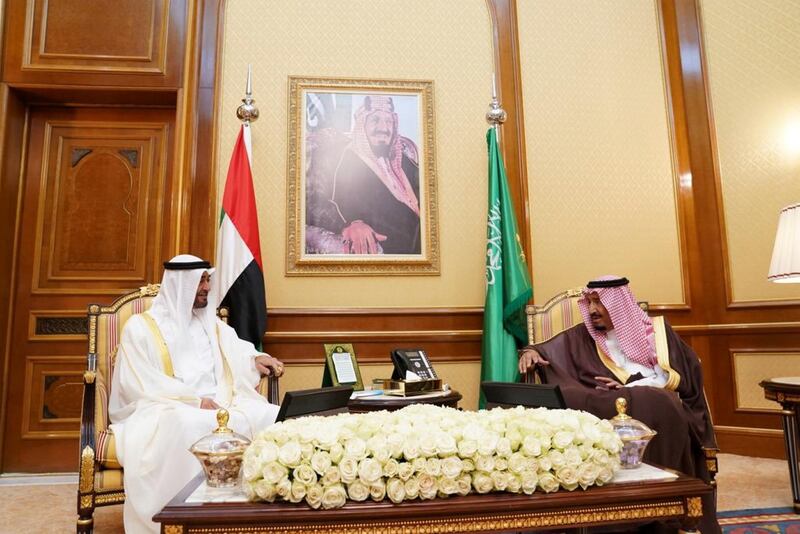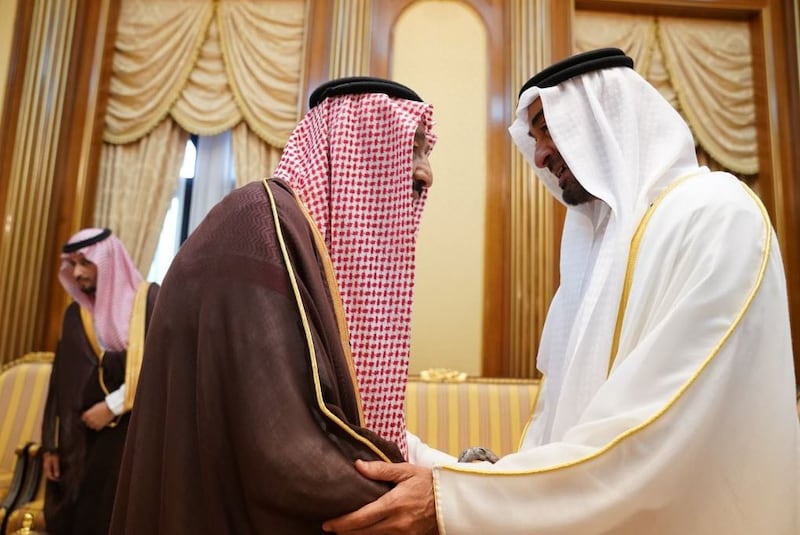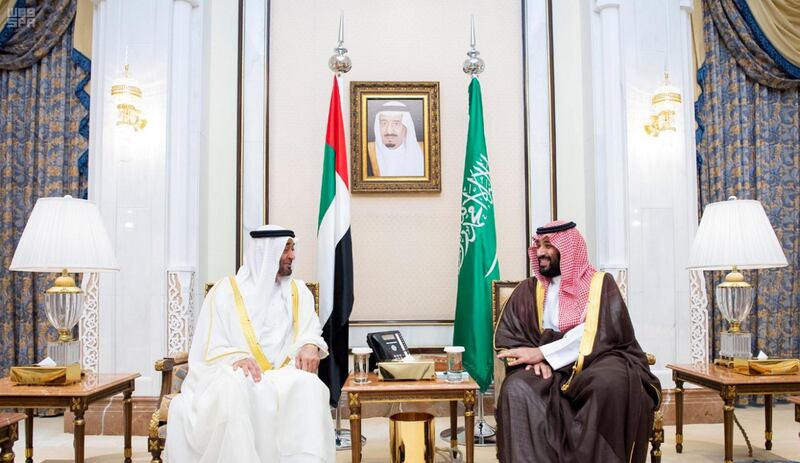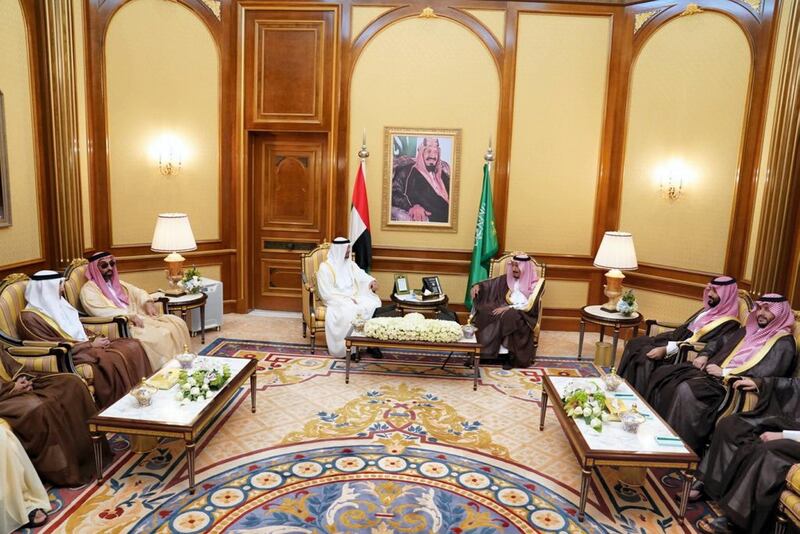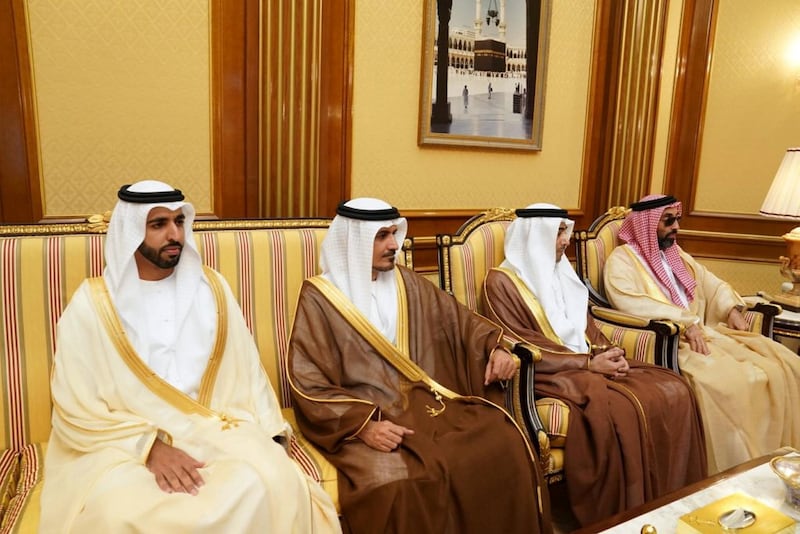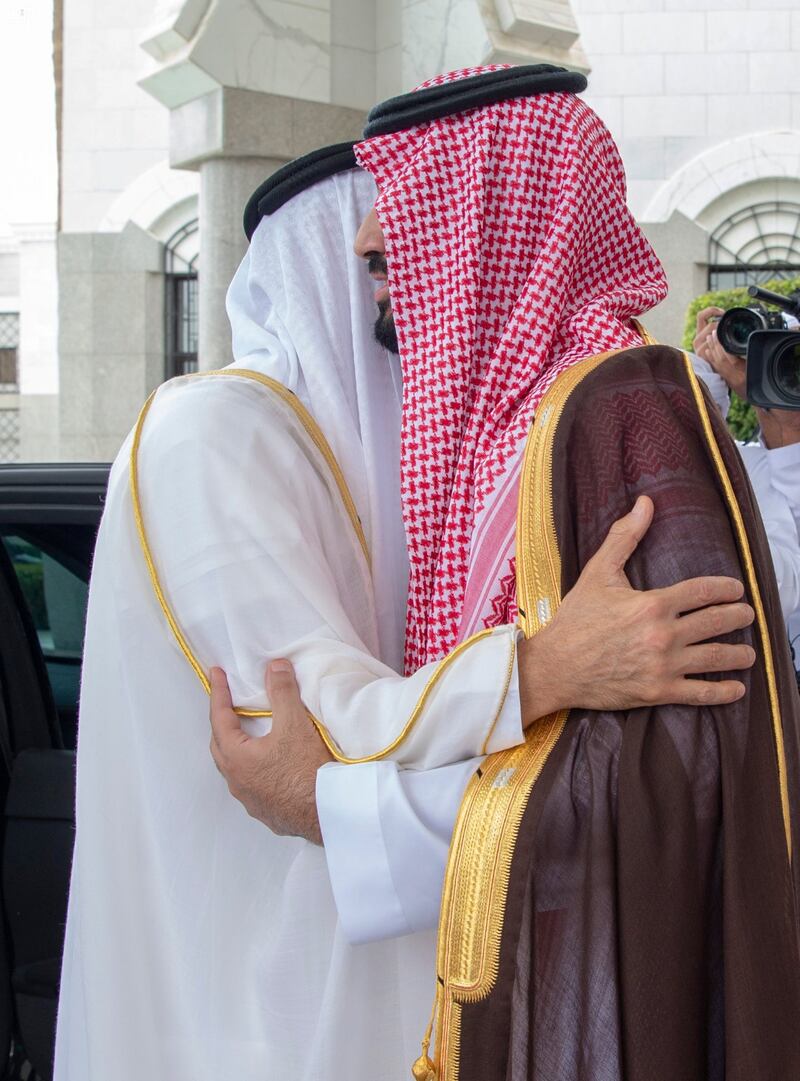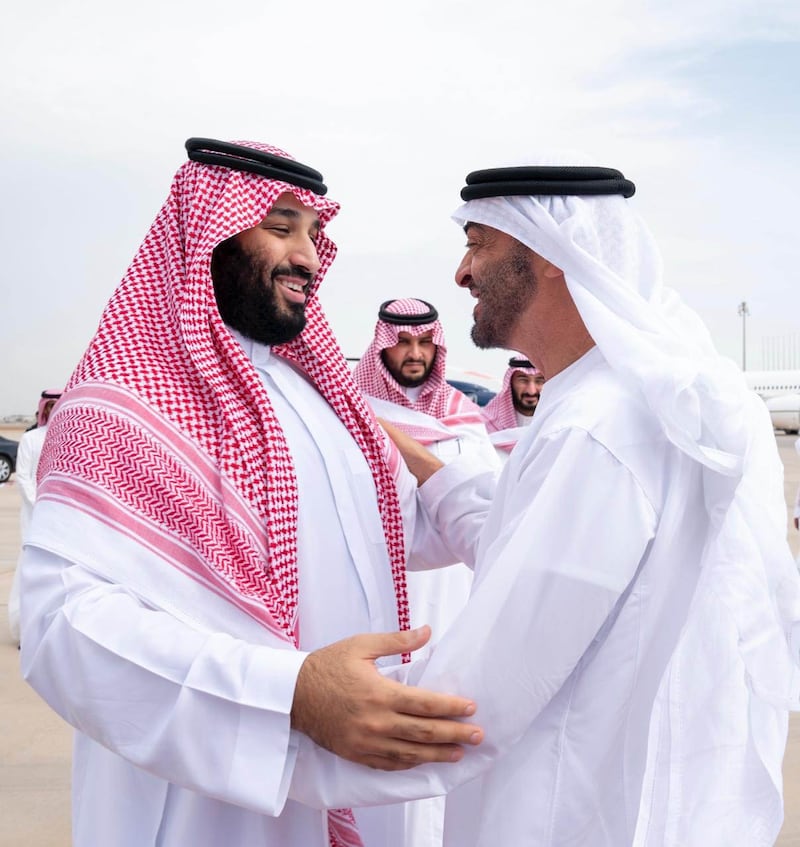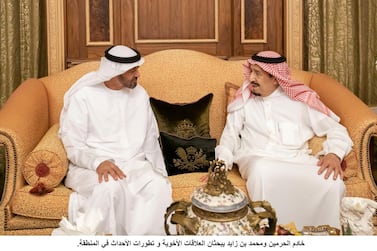The UAE and Saudi Arabia on Monday called on pro-government Yemeni parties to hold talks to resolve recent tension in Aden after days of clashes.
In Makkah, Saudi King Salman and Sheikh Mohamed bin Zayed, Crown Prince of Abu Dhabi and Deputy Supreme Commander of the Armed Forces, discussed the situation in Yemen.
The pair reaffirmed their call for the parties to "prioritise dialogue and reason in the interest of Yemen and its people".
Sheikh Mohamed said the two countries would "confront any and all powers that threaten the safety and security of the region", the state news agency Wam reported.
He landed in Saudi Arabia on Monday and was welcomed in Jeddah by deputy defence minister Prince Khalid bin Salman before travelling to Makkah to meet King Salman.
Sheikh Mohamed later held talks with Saudi Crown Prince Mohammed bin Salman, who was also present at the meeting with King Salman, the Saudi Foreign Ministry said.
The visit came amid calm in Aden after days of clashes between forces loyal to the internationally recognised government of President Abdrabu Mansur Hadi and those affiliated with the secessionist Southern Transitional Council.
Both forces have been fighting the Iran-backed Houthi rebels with training and support from an Arab military coalition in which Saudi Arabia and the UAE are leading members.
STC leader Gen Aidarous Al Zubaidi said late on Sunday that he was committed to a ceasefire in Aden and taking part in Saudi-brokered peace talks with the government.
The government affirmed “its commitment to respect the call of the Saudi-led coalition to a ceasefire”.
The International Committee for the Red Cross said clinics had reported scores of dead and hundreds wounded in the fighting that broke out last Wednesday.
Residents said that Aden's water and power supply that had been disrupted during the clashes were restored on Monday.
The southern port city serves as the temporary base of the government after the Houthis seized the capital, Sanaa, in late 2014.
The rebels have been have been driven out of Yemen's south but continue to hold much of the north and areas along the west coast including in the key port city of Hodeidah.
The Houthis have increased missile and drone attacks across the Yemen's northern border with Saudi Arabia in recent months, with the coalition reporting that it intercepted another drone launched towards the kingdom from Sanaa on Monday.
Coalition spokesman Col Turki Al Malki said the attempt by the Iranian-backed rebels had been stopped and that the international forces would continue to use deterrent measures against the “terrorist militia to neutralise and destroy these capabilities".
In May, two pumping stations on the Saudi East-West oil pipeline were damaged by drones.
On June 12, the Houthis fired an Iranian-made Ya Ali cruise missiles at the southern Saudi airport of Abha wounding 26 civilians. The airport was hit a second time on June 23 and again on June 25.
The fighting in Aden complicates UN efforts to implement a stalled peace deal in Hodeidah, the main entry point for most of Yemen's aid and food imports.
The ceasefire, reached at UN-brokered talks in Sweden last December, are seen as a precursor to further talks planned for this year as part of a political solution to the war.
